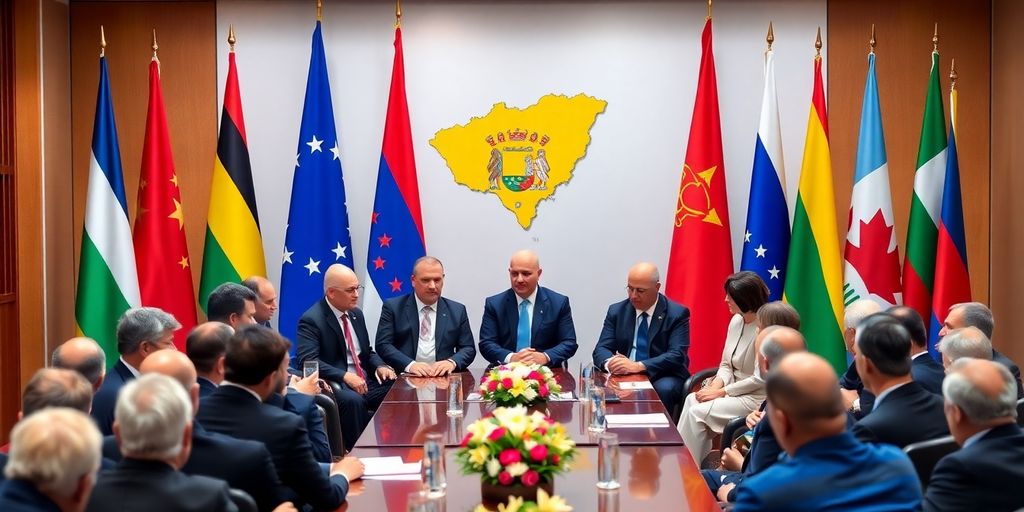In response to escalating tensions in Bosnia and Herzegovina, international leaders are convening to address the crisis. The Antalya Diplomacy Forum will host discussions among Türkiye, Bosnia, and Croatia, focusing on regional stability and the implications of separatist actions from the Serb-controlled entity, Republika Srpska.
Key Takeaways
- Türkiye is hosting a trilateral meeting with Bosnia and Croatia to discuss regional stability.
- NATO and EUFOR are increasing their military presence in Bosnia to counter separatist threats.
- International leaders emphasize the importance of preserving Bosnia’s territorial integrity and constitutional order.
Background of the Crisis
The current crisis in Bosnia and Herzegovina has been exacerbated by recent actions from the leadership of Republika Srpska, particularly following a court ruling against Milorad Dodik, the entity’s president. This ruling has led to a series of legislative moves aimed at undermining the authority of Bosnia’s federal institutions, raising fears of renewed ethnic tensions.
International Response
Türkiye’s Role
Türkiye has taken a proactive stance in addressing the crisis. President Recep Tayyip Erdogan has reiterated Türkiye’s commitment to Bosnia’s sovereignty and territorial integrity. Key points from Türkiye’s diplomatic efforts include:
- Hosting a trilateral meeting with Bosnia and Croatia to foster dialogue.
- Emphasizing the need for all ethnic groups in Bosnia to work together to ease tensions.
- Providing the largest number of troops to the EUFOR peacekeeping mission in Bosnia, second only to EU member states.
NATO’s Commitment
NATO Secretary-General Mark Rutte has also voiced strong support for Bosnia’s federal government, condemning the separatist moves from Republika Srpska. His statements highlight:
- The unacceptability of actions that threaten the Dayton Agreement, which ended the Bosnian War.
- NATO’s unwavering commitment to maintaining peace and stability in the region.
- The need for a unified response from Bosnia’s multiethnic presidency to address the crisis.
Military Reinforcements
In light of the rising tensions, additional EUFOR peacekeeper troops have been deployed to Bosnia. Recent developments include:
- Arrival of Italian and Czech military personnel to bolster the peacekeeping force.
- Plans for Romanian troops and military supplies to follow.
- Issuance of arrest warrants for top Bosnian Serb officials, including Dodik, in response to their defiance of federal authority.
Conclusion
The international community is closely monitoring the situation in Bosnia and Herzegovina as leaders from Türkiye, NATO, and the EU work together to prevent further destabilization. The upcoming trilateral meeting in Antalya is a crucial step in fostering dialogue and cooperation among the region’s key players, aiming to uphold the principles of peace established by the Dayton Agreement. As tensions rise, the commitment of global powers to support Bosnia’s sovereignty remains vital for the stability of the Western Balkans.
Sources
- Türkiye to host trilateral talks with Bosnia, Croatia at ADF amid regional tensions, TRT World.
- Türkiye, Bosnia and Herzegovina, Croatia to discuss regional peace, separatism, cooperation at Antalya
Diplomacy Forum, Anadolu Ajansı. - Türkiye vows to help Bosnia, Herzegovina overcome current crisis, Türkiye Today.
- NATO’s Rutte backs Bosnia after separatist moves by Serbian region | Conflict News, Al Jazeera.
- Additional EUFOR peacekeeper troops arrive in Bosnia amid rising tensions, Euronews.






